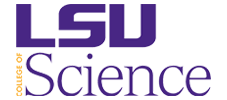|
TeraGrid’09 Keynote Speakers Include Ed Seidel, Paul Avery and Thomas Cheatham
Edward Seidel, a globally recognized physicist at Louisiana State University and the leader of the National Science Foundation’s Office of Cyberinfrastructure; Paul Avery a recognized leader in advanced grid and networking for science from the University of Florida; and Thomas Cheatham, a professor at University of Utah well known for his work in biomolecular simulations, will deliver keynote speeches at TeraGrid'09, the fourth annual National Science Foundation (NSF) TeraGrid conference, June 22-25 in Arlington, Virginia.
"These talks will give TeraGrid ’09 attendees diverse perspectives on computational science and the evolving national cyberinfrastructure," says John Towns, chair of TeraGrid ’09. "Ed, Paul and Tom not only have substantial experience using distributed, high-end resources, they also contribute to developing the future landscape of high-performance computing.”
Seidel became director of the NSF Office of Cyberinfrastructure in September 2008 and oversees advances in supercomputing, high-speed networking, data storage and software development on a national level. He retains his faculty positions and his affiliation with the Center for Computation and Technology at Louisiana State University. Prior to these posts, Seidel was a professor at the Max-Planck-Institute for Gravitational Physics (Albert Einstein Institute, or AEI) in Germany. There, he founded and led AEI's numerical relativity and e-science groups, which became leading forces worldwide in solving Einstein's equations using large-scale computers and in distributed and grid computing. He also served as a senior research scientist at the National Center for Supercomputing Applications and as an associate professor in physics at the University of Illinois at Urbana-Champaign. In addition, Seidel is presently the chief scientist for the Louisiana Optical Network Initiative.
Avery is a professor of physics at the University of Florida. He was a long-term member of the CLEO collaboration where he pursued research on heavy quark production and decays, developing and implementing several statistical techniques that have been widely adopted. He currently participates in the CMS experiment at CERN, Geneva, where he is developing computing infrastructure and creating software that will make possible the discovery of very heavy particles with incomplete information. In addition, Avery is a fellow of the American Physical Society and has served on numerous national and international committees and panels. Avery is a co-principal investigator and founding member of the Open Science Grid which operates a national Grid cyberinfrastructure for data intensive science experiments.
Cheatham is an assistant professor in the departments of medicinal chemistry and of pharmaceutics and pharmaceutical chemistry at the University of Utah. In addition to his many advisory roles on campus, Cheatham is a member of the TeraGrid Science Advisory Board and is a large user of NSF TeraGrid computational resources. His use of high-performance computing was largely fostered through the NSF centers, starting with involvement in summer supercomputing institutes as a graduate student and, over time, leading to larger scale use of the resources. Published in more than 50 publications, Cheatham’s largely National Institutes of Health-funded research involves the use of HPC and biomolecular simulation methods to understand protein and nucleic acid structure, dynamics and interactions. Specifically, he uses large-scale simulations to investigate how receptors remodel upon drug binding, how RNA moves, and where the simulation models break down.
TeraGrid’09 will bring together science and engineering researchers who employ computational methods, technology developers and TeraGrid staff as well as educators and students.
Registration for the conference will open in late March. Registration fees are as follows: early registration (by or before May 22): $325; late registration (after May 22): $395; registration including Tutorials: $405; and high school and undergraduate student registration: $100.
For more information on TeraGrid’09, please see http://www.teragrid.org/tg09/.
About TeraGrid:
The TeraGrid, sponsored by the National Science Foundation Office of Cyberinfrastructure, is a partnership of people, resources and services that enables discovery in U.S. science and engineering. Through coordinated policy, grid software, and high-performance network connections, the TeraGrid integrates a distributed set of high-capability computational, data-management and visualization resources to make research more productive. With Science Gateway collaborations and education programs, the TeraGrid also connects and broadens scientific communities.
------------
Faith Singer-Villalobos
Public Relations
The University of Texas at Austin
Texas Advanced Computing Center (TACC)
Direct: 512.232.5771
faith@tacc.utexas.edu
_______________________________________________
Wg mailing list
Wg@teragrid.org
http://teragrid.org/mailman/listinfo/wg
|
